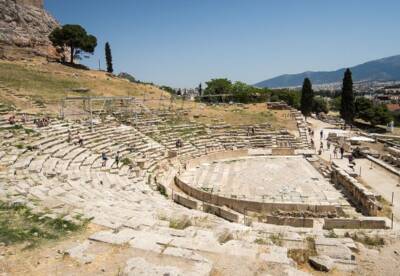A writer’s recollection of significant moments and sites often plays a major role in the creative process.
I received a letter recently from a writer-friend who lives in Sydney where he has a view of the virtually airborne opera house from the terrace of his high-rise condo.

He has appreciative memories of his years as a fledgling novelist in Buffalo but wonders if he would have earned his wings in a mid-size lake-port city which, for all its cultural resources, can’t compete with New York or London as a vortex of creative energy.
He speaks for himself and knows that a writer can work anywhere and send a manuscript (or file) out to the larger world. He even might agree that writers find their material in circumscribed environments, but he prefers a wide-angle view.
Still, a writer’s recollection of significant moments and sites often plays a major role in the creative process: Longfellow’s “The Jewish Cemetery at Newport”; Leopold Bloom’s wandering through Dublin on June 16, 1904, in Joyce’s Ulysses (1922).
Memory of the past can function like Wordsworth’s “spots of time,” moments when a wannabe pen-person observes the human drama closeup and personal. The young scribbler doesn’t have to ascend the Empire State Building to observe life in the round. Montaigne, who retreated to a tower on his estate, reminds us, “Every man carries in himself the complete pattern of human nature” (1580).
Greek playwrights needed amphitheaters as the proper stage for their presentation of colossal conflicts during festivals performed for legions of Hellenic citizens. Masks and elevated sandals were needed so that folks in the ancient bleachers could identity characters just as NFL players need numbers and jockeys multi-color silks.
Oedipus Rex was performed on the light-filled slopes of the Acropolis; Thornton Wilder’s Our Town can be staged successfully in a dimly lit barn to a small audience sitting on benches so the Stage Manager can “talk” directly to them.
Even as the platform for the representation of the human condition has been reduced in size – two characters in one room in Tuesdays With Morrie — our field of introspective vision has expanded. Depth psychology and the MRI have been added to the epic view of the human condition from the peak of Mt. Parnassus.
As Covid-19 limited our horizons by encouraging us to keep a safe distance in public spaces, especially the elderly and vulnerable, many of us became somewhat housebound and needed to become more like hummingbirds whose ocular prowess turns a brilliant rose bush into a botanical garden.
We’ve learned to pay more attention to our local worlds and the varied actualities of life on the streets where we live. Just yesterday, I chatted with a neighbor down the street whom I had seen only at a distance and learned she was a refugee from Myanmar whose husband was just released from a prison.
Another denizen of OUR street, Navy-vet, supervisor in a tire factory, came over one day and told me he has a daughter in Hong Kong whom he never has met who now wants to meet him because he has sent money for so many years. “It’s kind of like Madame Butterfly,” he said, smiling, “life comes around sometimes like a tire.”
There’s a lot to see and learn by looking out the window of my study perch and walking around our cul de sac. One meets characters as unique as the pilgrims in Chaucer’s Canterbury Tales. It doesn’t take a village to expand horizons.
There’s no need for me to fly around the world anymore, even if sciatica, impatience with delays, and some other age-related infirmities weren’t factors. I’ve gone around the the world in my time as an overseas teacher and lecturer and live on a loop of humanity.
I sometimes regret having alighted on a solitary perch of observation, so I wait for the return of a pair of mourning doves to remind me that one comes home in the end one way other, if only in memory and creative writing, Robert Frost’s “tribute of the current to the source.”
I sit in the crow’s nest of memory as well as memorabilia, recall the past, and try to expand my comprehension of “all the world’s a stage,” even in Eggertsville, NY.
Howard R. Wolf is the author of A Version of Home: Letters from the World and a three-act play, Home at the End of the Day: A Family Drama.
- Red States in the Sunset - August 10, 2023
- A Robin Hood Rerun - July 26, 2023
- Space Exploration: In Dreams Begin Responsibilities - July 3, 2023

